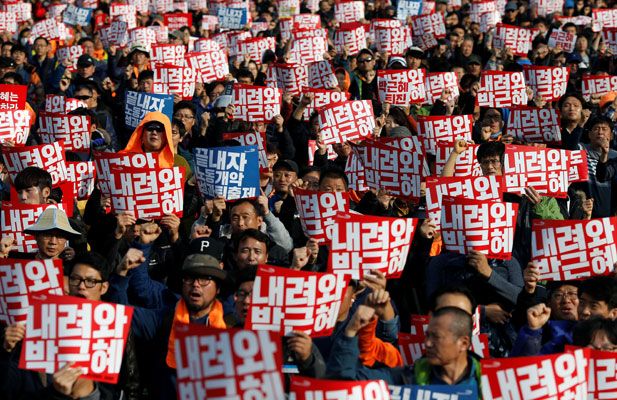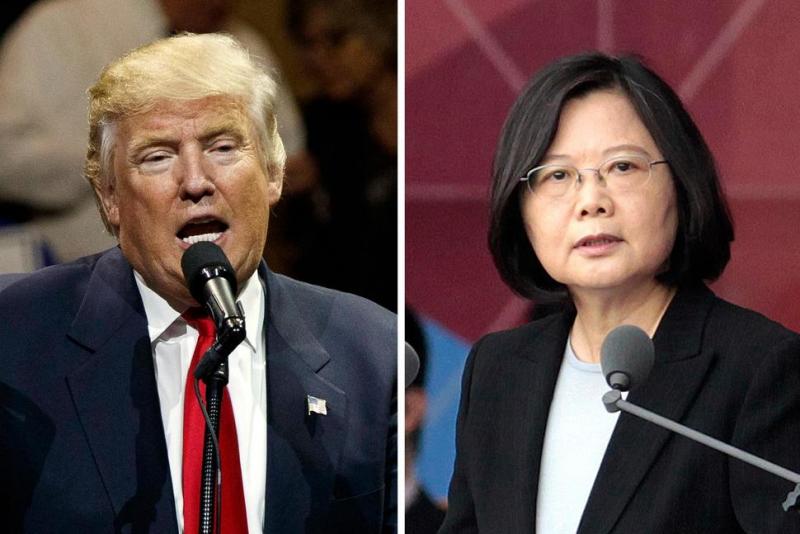Happy Lunar New Year from the USC US-China Institute!
Teaching About Asia: December 2016

Featured Resources | California Learning Opportunities
East Asia in the News
South Korean Political Crisis
 South Korea is home to 49 million people and enjoys low rates of inflation (about 1%) and unemployment (3.5%). It’s per capita GDP is over $35,000. Brands such as Samsung and Hyundai are well-known and South Korean films, music, and television dramas rule East Asia. But for months now, the headlines have been dominated by rumors about the relationship Park Geun-hye, South Korea’s first female president, has with an advisor, who seems to have used that connection to extort money from Korean firms. Park has just been impeached. Below are some useful articles describing the scandal and its political and economic ramifications.
South Korea is home to 49 million people and enjoys low rates of inflation (about 1%) and unemployment (3.5%). It’s per capita GDP is over $35,000. Brands such as Samsung and Hyundai are well-known and South Korean films, music, and television dramas rule East Asia. But for months now, the headlines have been dominated by rumors about the relationship Park Geun-hye, South Korea’s first female president, has with an advisor, who seems to have used that connection to extort money from Korean firms. Park has just been impeached. Below are some useful articles describing the scandal and its political and economic ramifications.
- Crowds in the streets
- What’s next
- An analysis of Park’s past election and present struggles.
The Call

On Dec. 3, Tsai Ing-wen, President of the Republic of China (Taiwan), spoke by telephone with Donald Trump, the President-Elect. What they talked about during the ten minute call was much less important than the fact that it was announced that had spoken. Officially (and perhaps unofficially as well), the leaders of the two governments had not spoken for forty years. Both Tsai and Trump insisted afterwards that the call did not signal a policy change. But it did signal that Trump is not wedded to the norms established by his predecessors. In April he said that he likes to be unpredictable. Others are less pleased, worrying that predictability is important for America’s stature in the region. Trump says he’s unsatisfied with the existing U.S.-China relationship and that he’s ready to renegotiate it. Since then, many scholars and former officials have discussed the call and America’s ties to Taiwan and its much larger neighbor, which claims it as its own.
- Shirley Lin, author of Taiwan’s China Dilemma, writes that America’s policy toward Taiwan needs to change. Lin spoke at USC about her book.
- Michael Swaine argues that changing America’s “one China policy” would be irresponsible.
- J. Michael Cole focuses on the domestic imperatives that caused Tsai to want to talk.
History and Culture
“How to ‘Read’ a Chinese Scroll” – Freer-Sackler

Chinese paintings have traditionally been in three formats: hand scrolls, hanging scrolls, and album leaves. This Smithsonian guide introduces hand scrolls and shows how one should “read” them. One of the examples discussed served as a letter of recommendation! The Metropolitan Museum of Art has an essay on handscrolls. The author Dawn Delbanco writes, “The experience of seeing a scroll for the first time is like a revelation. As one unrolls the scroll, one has no idea what is coming next: each section presents a new surprise. Looking at a handscroll that one has seen before is like visiting an old friend whom one has not seen for a while.”
Some online examples of famous hand scrolls:
- Admonitions scroll (British Museum)
- Along the River During the Ch’ing-Ming (Qingming) Festival (National Palace Museum, Taipei) *desktop browser necessary
USC Spring 2017 Seminar

The USC U.S.-China Institute NCTA seminar will focus on pre-modern East Asia. The seminar begins on Feb. 27 and runs through May 8, 2017. It will focus on the dynamic traditions of China, Korea, and Japan as well as links with other cultures. The application deadline is February 17. Participants in the seminar will gain a good background in the history and culture of the region and solid ideas on how to integrate it into their courses. Those completing all seminar requirements receive a $250 stipend, either salary point or continuing education credit, and essential readings and other resources. Those completing the seminar become eligible to apply for subsidized NCTA national study tours.
USC Workshops
The institute will offer three one day workshops for teachers in spring 2017. The workshops will be 9 am to 3:30 pm at USC. Additional details and applications will be available in January.
- March 11, 2017 Popular Culture in East Asia
- March 25, 2017 China’s Cultural Revolution
- April 22, 2017 The U.S. and East Asia (coincides with the Los Angeles Times Book Festival at USC)
Stanford Seminars
The SPICE program at Stanford will offer two NCTA seminars this spring. The seminar for middle school teachers is January – March and the seminar for high school teachers is February through April.
Featured Articles
We note the passing of many prominent individuals who played some role in U.S.-China affairs, whether in politics, economics or in helping people in one place understand the other.
Events
Ying Zhu looks at new developments for Chinese and global streaming services.
David Zweig examines China's talent recruitment efforts, particularly towards those scientists and engineers who left China for further study. U.S. universities, labs and companies have long brought in talent from China. Are such people still welcome?






